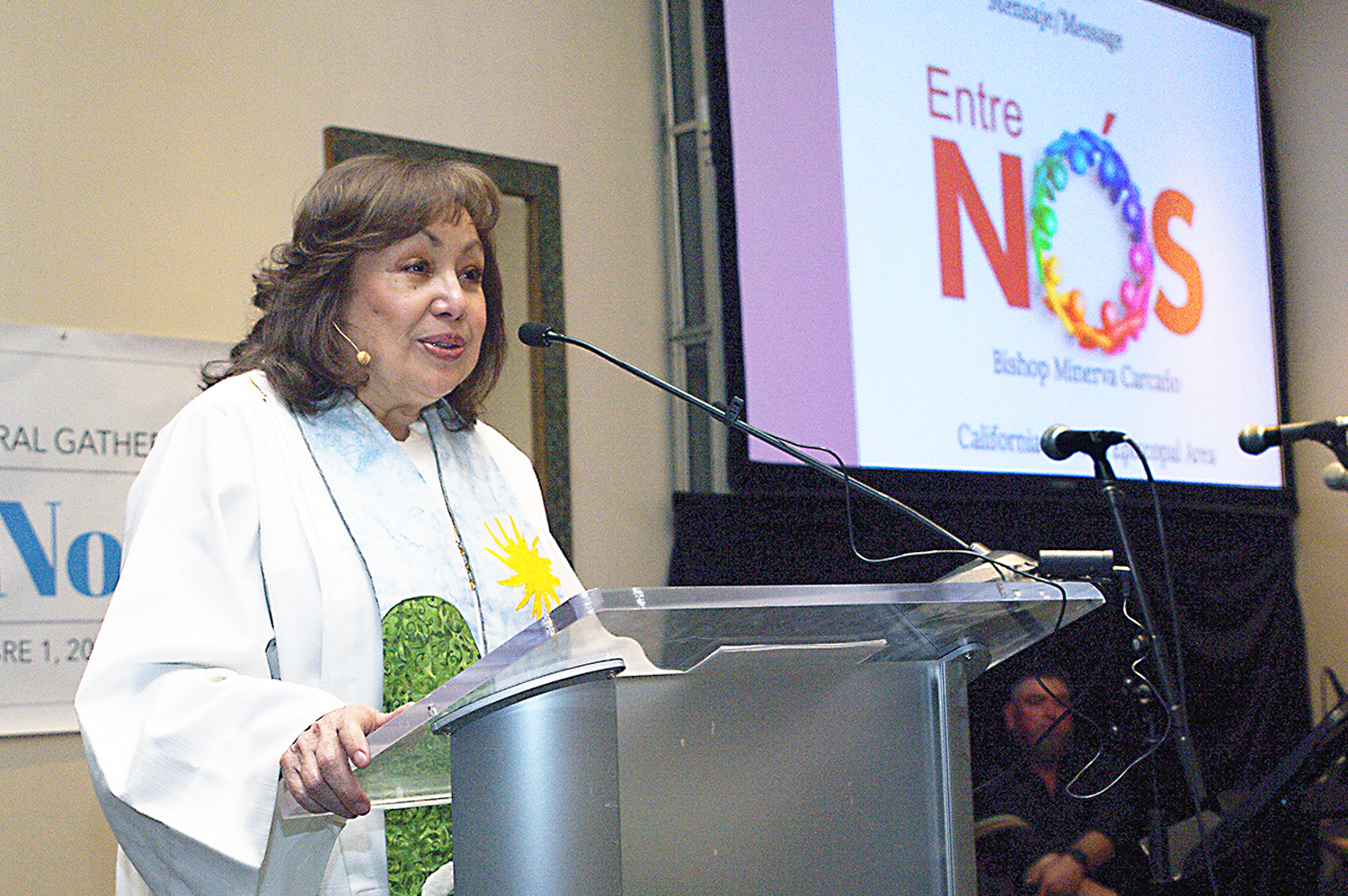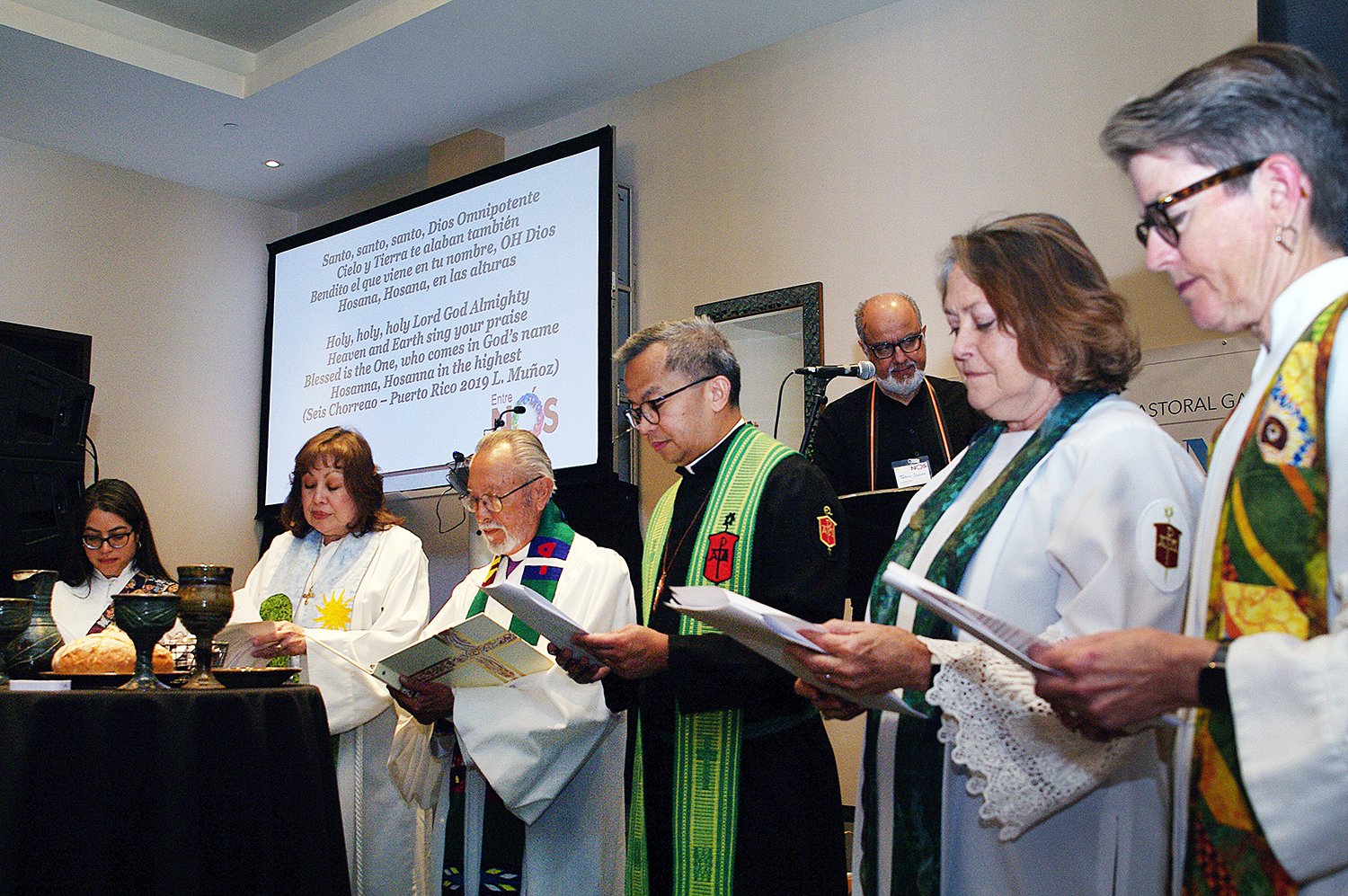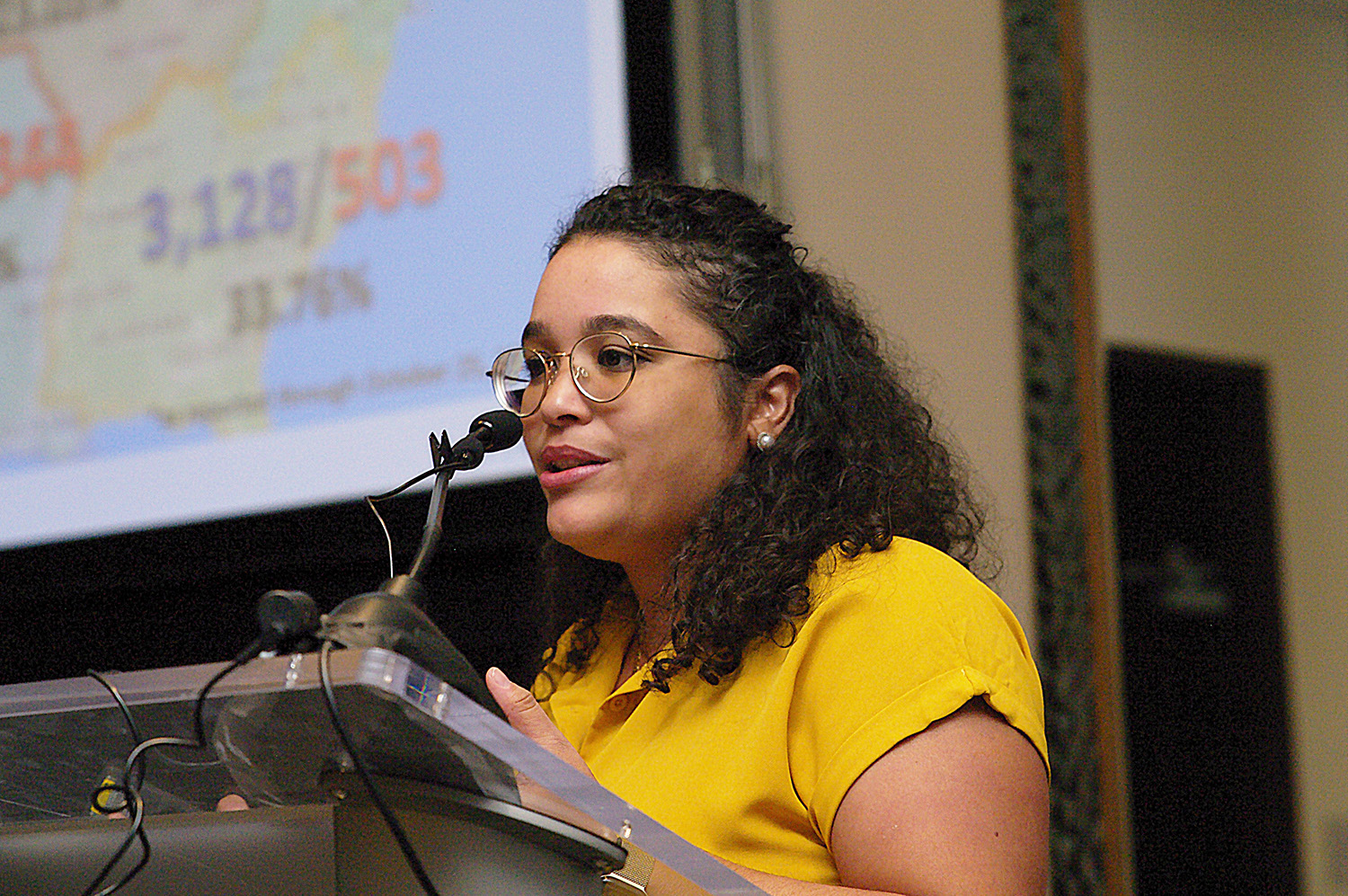December 7, 2023

After the long period of isolation due to the COVID-19 pandemic, Hispanic-Latino leaders of The United Methodist Church gathered Oct. 30-Nov. 1 in Phoenix. The event, Entre Nos (“Among Us”), was hosted by the National Plan for Hispanic-Latino Ministry, attracting more than 130 participants from different parts of the country.
The central objective of the event was reconnecting with each other after years of isolation, taking a deep look at Hispanic/Latino ministry and offering ways to pivot in this moment in the life of The United Methodist Church.
Along with partners from Wespath Benefits and Investments, organizers sought to develop resources and opportunities for Hispanic/Latino clergy to strengthen their financial acumen and knowledge and to discover the various resources that Wespath offers to clergy.
More than 100 pastors gathered to reflect on the realities and challenges they face in their ministries. For many, it was an opportunity to reconnect after three years of the pandemic. Interpersonal connection was especially valued, allowing participants to share experiences, advice and wisdom and strengthen the connectionalism that is fundamental in The United Methodist Church.

The Rev. Candace Lewis of Gammon Theological Seminary presented a study on United Methodist clergy of color, highlighting the financial, emotional, physical, environmental and spiritual challenges they faced during the pandemic.
The Rev. Giovanni Arroyo, top executive of the United Methodist Commission on Religion and Race, said the effects of the pandemic on emotional health are not discussed enough in the Hispanic/Latino community.
“This opened the door for us to be more intentional about how to have these conversations. We talked about depression and burnout, which are realities that are evident,” he said. “But in our culture, many times we’re told, ‘Just suck it up’ and ‘God will not give you more than you can handle.’ It’s very hard for you to be a pastor giving it all and not also yourself be cared for.”
The event also marked the return of Bishop Minerva Carcaño to her episcopal responsibilities after being suspended since March 2022 as complaints against her were under review. In September, a jury of fellow United Methodist clergy found her not guilty of all charges. However, as many reflected, the church trial and events surrounding it only compounded the feeling of isolation, invisibility and frustration that many Hispanic/Latino clergy expounded on.
Carcaño led an emotional opening worship service, reflecting on the impact of COVID-19 on Hispanic-Latino communities and racial minorities in the United States. Additionally, tribute was paid to Bishop Elías Galván, who was the first Hispanic/Latino to be elected bishop of The United Methodist Church and whose 50-plus-years’ legacy was celebrated at the event.

Disaffiliations, affecting 13.4% of Hispanic-Latino churches, were discussed as well. This presents a challenge to Hispanic-Latino ministry, leaders said, but also an opportunity, as many felt that this moment might create the space and the agility in The United Methodist Church to be intentional about developing more ethnically diverse congregations.
“This gave us a glimpse of what Hispanic/Latino ministry looks like in The UMC. It’s not a monolithic space, not one language,” Arroyo said. “People left renewed and hopeful that we could do this even despite the times we’re not recognized by the church in our leadership.”
The event also provided a platform for the National Plan to present a bilingual/bicultural theological training program for lay leaders, with a special emphasis on public theology. The curriculum is designed to train lay missionaries to answer the question that the National Plan has always engaged in: What do we see? What do we discern? How do we respond to God to build the beloved community?

In the final session, participants made a number of recommendations to strengthen Hispanic-Latino ministry in the denomination, including:
- the creation of specific programs for children,
- the establishment of a national directory of Hispanic-Latino churches,
- the alignment of the work plan of the church with the legislation established by the General Conference,
- the search for theological unity, and
- the development of a contextualized curriculum adapted to the specific needs of the community.




